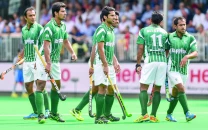Media takes a knock for stereotyping women
Speaker encourages women to use social media but carefully.

Media takes a knock for stereotyping women
Female journalists, young and old, were encouraged to use the social media to “amplify their voice”. However, at the same time, they were urged to secure themselves online.
The advices were offered by Afia Salam, a media and outreach consultant, who led the second day session of a training organised by Uks, an NGO that focuses on gender equality and women’s development, and the Centre for International Private Enterprise (CIPE).
Salam told the journalists that they had a bigger responsibility while using the social media. She warned that though social media gave one more freedom to express oneself that did not mean that they could say anything and not expect any repercussions. Salam gave the examples of two girls who were arrested in Mumbai because of a Facebook post that questioned the city-wide shutdown for Shiv Sena leader Bal Thackeray’s funeral.
“Please do not think that social media is only for the young,” said Salam, who has salt and pepper hair. “Do not be afraid of the technology, understand it and use it to your advantage,” she advised senior journalists.
When asked which social media site she would recommend, Salam’s answer was “Twitter”, because it is the easiest and relatively secure than Facebook. Another plus is that you come across an “alternate point of view”, something that is very important for journalists, said the trainer.
Asked how one could protect oneself online, Salam suggested always logging out of websites and email accounts, especially while using a shared or public computer, change one’s passwords regularly and deselecting options like ‘remember password’ and ‘always keep signed in’.
Gonilla Gill, a participant from Dunya TV, interjected to share that an FIA official had also suggested to her once, after a relative’s Facebook account was hacked, that internet users make their passwords strong. Salam elaborated that people should make sure a password contained alphabets, digits and symbols.
“You leave footprints by uploading photos, updating statuses from various devices... It can come back to haunt you,” she said.
On the first day, Tasneem Ahmar, Uks Research Centre director, conducted two sessions. The media usually talks about women who are in the power corridor or those who have been harassed or attacked, Ahmar lamented.
She said the entertainment media were “equal partners in crime” as they strengthened negative stereotypes. In a drama, she said, there was a line, “The biggest mistake of your life would be to marry a working woman.” All dramas seem to suggest that a woman will get respect if she confines herself to her home, Ahmar said. But, she added, with the years have come some victories . An example: Almost all Urdu newspapers used to describe the dumping of a newborn’s body as “kunwari maan apnay gunahon ko kooray kay dhair main chorh kar chali gayee” (An unmarried mother abandons her sins in a garbage heap). It took years of calls, letters and requests to have it changed to “aik naumolood ki lash kooray kay dhair say mili hai” (A newborn’s body has been found from a garbage heap).
Published in The Express Tribune, December 16th, 2012.



















COMMENTS
Comments are moderated and generally will be posted if they are on-topic and not abusive.
For more information, please see our Comments FAQ